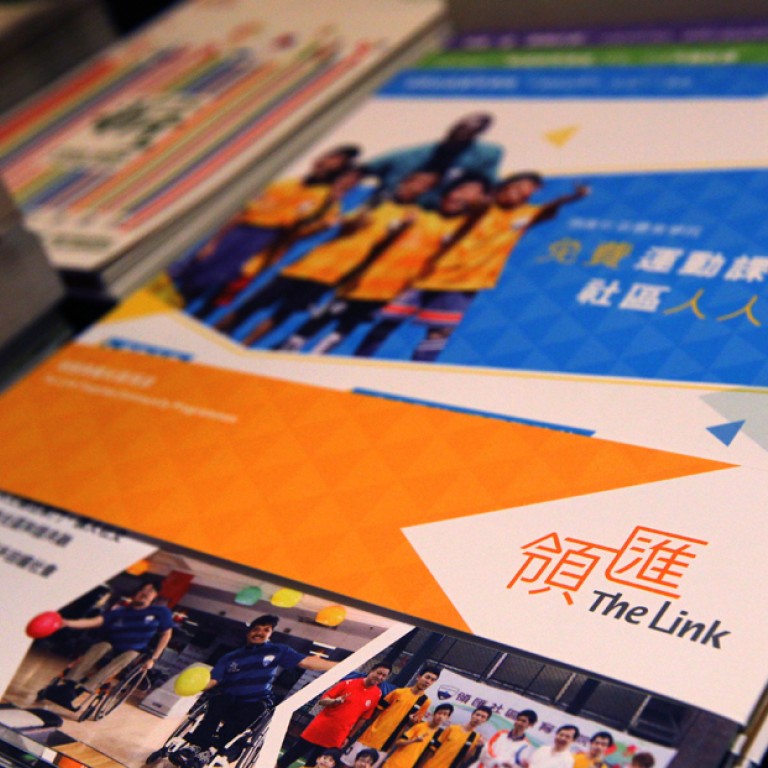
Link Reit's sale of shopping centres will leave poorer residents worse off
Albert Cheng says poorer residents and smaller shops will suffer most as trust focuses on prime locations with big chain stores and higher rents
The Link Reit has recently disposed of four of its shopping centres for a total of HK$1.24 billion, marking its first asset sale since it was established as a listed company in 2005.
Despite a public outcry, The Link - a real estate investment trust - pressed ahead with the series of deals, which saw the Hing Tin Commercial Centre, in Lam Tin, the Kwai Hing Shopping Centre, in Kwai Chung, the retail venues and car park in Tung Hei Court, in Shau Kei Wan, and the Wah Kwai Shopping Centre, in Pok Fu Lam, change hands.
In July 2005, the Court of Final Appeal affirmed that the Housing Authority was entitled to sell its shopping malls and car parks. The verdict, however, also makes it clear that the Housing Authority continues to be duty-bound to provide appropriate amenities to tenants of it housing estates.
After the announcement of the asset disposal, lawmakers from both the pro-establishment and pan-democratic camps, who backed the listing plan of The Link, have criticised the asset disposal and urged the government to buy back The Link's shares from the market by using public money.
The government has already rejected calls to do so.
I was a lone opponent to The Link's initial public offering exercise in 2004. I was under attack from all directions by politicians and the news media. A protest march was organised against me on New Year's Day, in which participants threatened to resort to violence to silence me.
I was portrayed as a public enemy, seeking to block a listing plan that could have meant easy money to speculators.
I was willing to stick my neck out because I was convinced that the floating plan could have far-reaching adverse ramifications on Hong Kong's long-term housing policy. I was concerned that small shop owners would be forced out of business, which, in turn, would affect the livelihood of public housing residents.
The government's move to sell its shopping malls and car parks at a much underrated HK$20 billion to a commercial interest was nothing but the transfer of benefits to business.
After a failed court attempt to block the IPO exercise, The Link was listed on the stock exchange in November 2005. It was valued at HK$22 billion - less than the estimate of HK$30 billion the year before the legal challenge. Today it is estimated to be worth about HK$100 billion.
That means the government has suffered a loss of more than HK$80 billion of taxpayers' money - something that could have been used for a seed fund to kick-start a comprehensive retirement scheme for all residents.
As a listed company, The Link has every right to sell its properties to reap profits. There is little room for public objection.
Buying back the stakes of The Link would involve more than HK$100 billion - which would have to come from public coffers. The Link, of course, would be more than happy to accept the deal, as it could rid the management of the problem of divesting and selling the retail and car park facilities. The government, however, would certainly be blamed for transferring benefits to a commercial interest.
The Link is now prepared to venture into the retail market on the mainland.
However, doing business on the mainland is no easy task given all the "hidden rules" with which Hong Kong businesses are unfamiliar and the increasingly keen competition from online shopping.
This could bring much greater risks and hurt the long-term, stable return that The Link is obliged to offer to its shareholders.
To maximise its return, The Link is expected to continue to upgrade its shopping malls in prime locations and bring in retail chain stores that can afford much higher rents, forcing small shop owners to move out.
The less lucrative shopping malls and car parks operated by The Link in remote districts are likely to be sold off to other private investors, which, like The Link, may increase rental levels and cut the preferential terms currently offered to non-profit welfare organisations to seek higher return.
In the end, it is the public housing residents, including the elderly and the disabled, who will suffer as they can no longer afford to buy necessities in the renovated shopping malls and will be forced to commute to other districts to look for cheaper products.
The recent moves of The Link have shown that its nature has changed and its shares are no longer a good investment.
First, its potential value has already been fully reflected; second, its stable rental income is no longer guaranteed with its continued sale of its divested assets; third, its venture into the mainland retail market would bring unpredictable risks to its investors.
With such prospects in sight, what else would I advise investors to do but sell off their shares?

